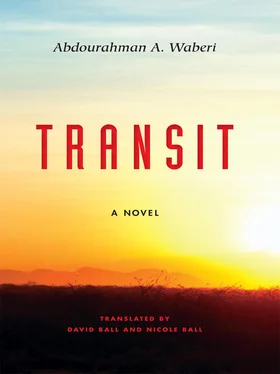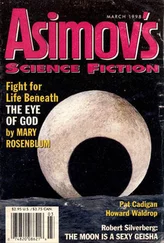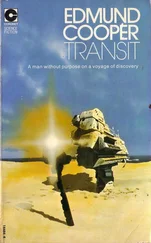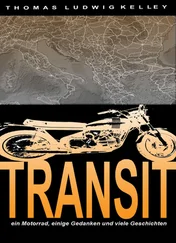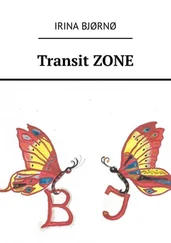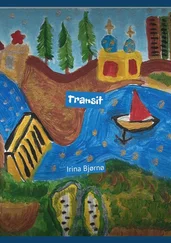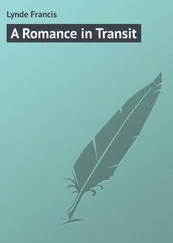In Djibouti it's so hot,
Metallic, bitter, brutal,
They grow palm trees of metal
The others die on the spot.
You sit beneath the scrap iron
While, grinding in the desert breeze
They pile up to your very knees,
the iron filings.
But under palms that sound like trains
Luckily, inside your brain
You're free to fantasize
A trip worldwide.
To think we nearly called ourselves Hadji Dideh, from the name of the man who signed the agreement with the French when they wanted to settle on this coast! Mau-Mau, that name down from Mount Kilimanjaro, was ideal. Two birds with one stone. First of all we can take it easy, no one's going to say we're pro-Walal, pro-Wadag, or who knows what kind of crap they can come up with. Second, it's a fighter's name, inspired by the spirits of the Kenyan forest. An anti-colonialist, anti-imperialist, Third Worldist warrior, and Pan-African to boot. It's revolutionary. Basta. No pasaran. It's Rasta, see. We can sing with the great I Jah Man “I Man a Warrior.” Go, youth! Avanti la musica.
The Théâtre des Salines, which was born well before I was, has the feel of an amphitheater with its stage almost square and its terraced rows of seats looking out on the port. They used to show the films of Laurel and Hardy, the adventures of Charlie Chaplin (and so a whole bunch of neighborhood kids were nicknamed Charlie either because of their duck walk or their dreamy look, and I do know a few), and films about the exploits of Pelé (the same goes for the nickname of guys who were really good with a soccer ball). Children of the poor who'd been ignored by the Republic also got their education there, and they found nothing better to do than jump the wall and infuriate the three or four policemen sent after them from the barracks. Down below are the famous salt fields that gave the theater its name, but alas alas the salt miners of the Territory who used to break their backs for a slave's salary disappeared after the parent company, Les Salins du Midi, decided to consolidate in the south of France. A neighborhood with clean housing, Einguela, was built toward the turn of the seventies over a large part of the once muddy terrain abandoned by the company from Marseilles. The capital grew considerably larger during those years, and all the empty spaces, all the oasis-like hollows, all the places in cemeteries where dusty ancestors were still lying, all the crossroads where caravans were used to kneeling got covered with cement and lampposts. Now the eyes of the city are like moving seaweed. The Théâtre des Salines is where we play for the working people of the neighborhoods.
WHEN I MET YOUR FATHER, I wasn't looking for some mythical Africa; I wasn't looking for the love of my life, the way others run after a great novelist. To tell you the truth, I wasn't looking for anything at all; I was just dragging myself around, bored and daydreaming away on the banks of the Vilaine River. Africa would come to me all by herself, like a big girl. Alas, my little cactus, it was not the rebellious continent, just the Africa of news reports as they're filtered through the clear conscience of the West. Then it became the Africa of dictators with Swiss bank accounts, the Africa of rickety children and bony old men, the Africa of famine and the shameless looting of its resources, the Africa of squalid huts and gleaming white teeth, the Africa of landless people, the Africa of guerrillas and desperados. The so-called experts who speak about Africa do not think it necessary to know its languages. Can you imagine a Sinologist who can't say hello-goodbye in the language of his studies? But I'm getting off my topic.
At that time, especially at that age, I was constantly fuming with rage, living on a volcano of passions. I wrapped up my studies of history with a college degree, and, disgusted by what they were teaching me about Africa and the French Empire, I registered for the entry examination to the School of Journalism in Paris. I felt ready to land on the burning banks of the Red Sea and examine the Africa I had begun to imagine, a many-layered, historical pastry with unique sedimentation. Your father joined me there, abandoning his band of friends with a heavy heart. He seemed to have grown up: in a few weeks, he had climbed the steps of age it usually takes many years to ascend. The perspective of finding his country still under colonial rule had given him wings, even if he dreaded the ordinary racism on both sides of the fence and what people might say once we were settled there. He lived through the last months of his life in Paris like a passerby, light-heartedly wearing the first wrinkles on his brow and a little paunch in his midsection. He couldn't care less about it, because in Djibouti, when you're married and past thirty, people talk to you like you're a responsible man, the head of a family, an almost-old man. Then, very quickly, came the whirlwind of the return. For the first few months, you don't really know who you are. You go from one house to another, one family to another, one friend to another with the assurance of a tightrope walker. You listen to advice; you collect various views and contradictory opinions with the same ears, without asking yourself too many questions. You don't really know who you are, or who they are. Everything is intoxicating: visiting the country, combing the city. Real life, right? But that feeling won't last. Soon, they put you in a ready-made box: you're the mixed couple people look at suspiciously. On lonely evenings (or their corollary, boring ones), you'll catch yourself sobbing at the prospect of once again having to face the gaping sadness that comes after dusk. You tell yourself that for him, you're ready to accept pain, humiliation, and even the sorrow to come, when things become normal, when his family wants to take back their man. We'll be caught in the midst of the storm, but alive and strong. In that situation of insidious adversity, you can only get tougher. A little inner voice would whisper to me on difficult days: “What made you come here to this land of echoes and dust, this antechamber of the desert where they bury the dead quickly to prevent the flies from gathering and performing their diabolical ballet? You're breathing an air made of boredom, routine, and triumphant poverty. Here, no one's going to ask much of you. Where will you put your tombstone if anything happened to you? Let this man and people like him soliloquize till the end of time.”
A month after our arrival, both of us found work. The authorities must have wanted to polish up their image: a domino couple with college degrees just off the plane, isn't exactly run-of-the-mill here, even if the president of the territorial council, M. Ali Aref, dug up a Frenchwoman from Nîmes — a naive lady, they say — with the help of Jacques Foccart, the man who distributes destinies in French-speaking countries allied with France. In September 1973, I was starting my first year of teaching at the Boulaos junior high school and your father joined the little scientific institute mainly devoted to geology, which had just opened its doors on the road to the airport. I really couldn't bring myself to be a journalist under the “leadership” of the high commissioner of the Republic, and aside from reporting on sports scores, I don't see what I could have shared with this milieu. I remained walled up in my silence with my colleagues; almost all of them were French, spurred on by the prospect of buying their rented apartment in a few months. Open my heart to them — are you kidding? They would have thought I was crazy, a terrorist almost, a half-wit who should be sent back on the first ship bound for France. I could read hypocrisy, spinelessness, and cowardice in their eyes. I kept my distance, never letting them think their meaningful glances or invitations had any effect on me.
Читать дальше
